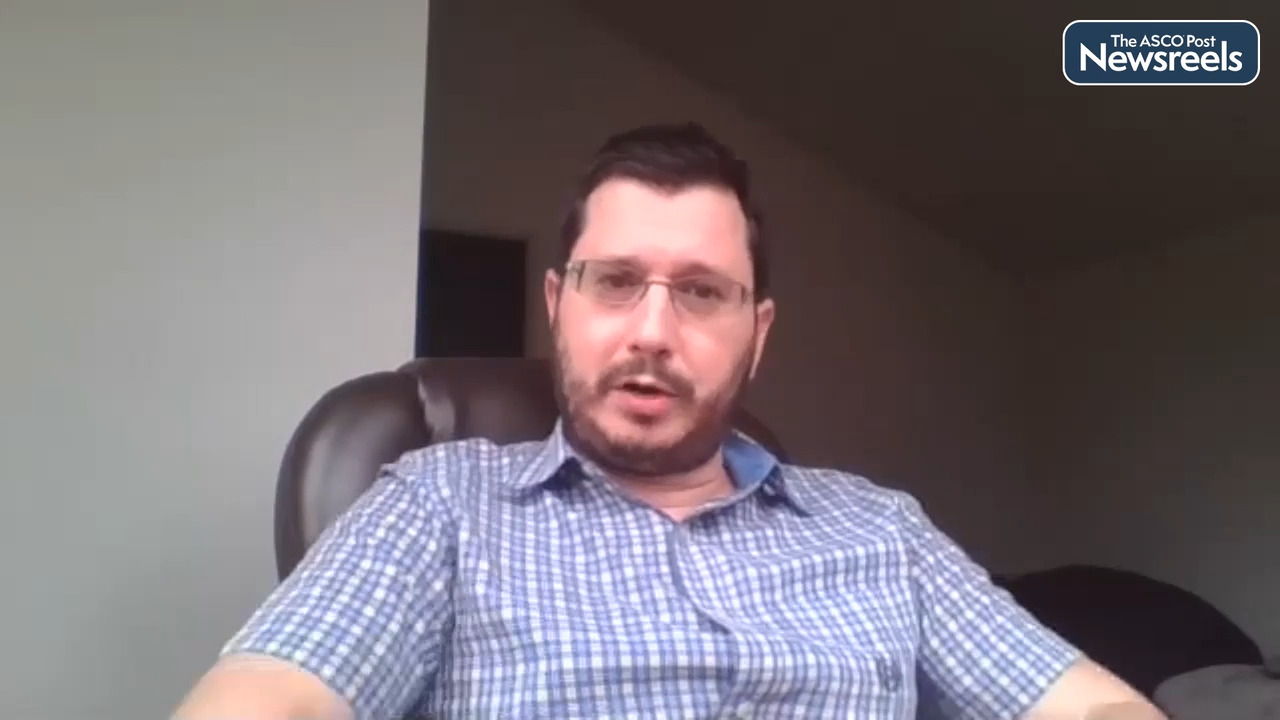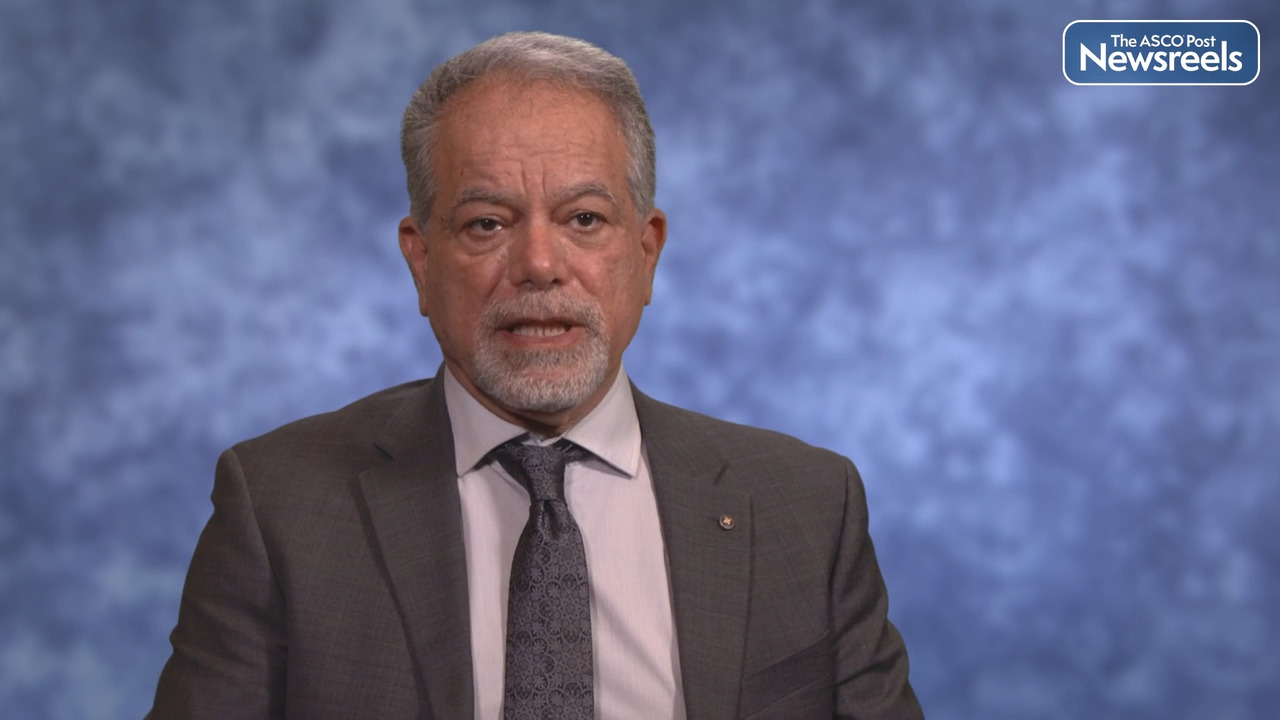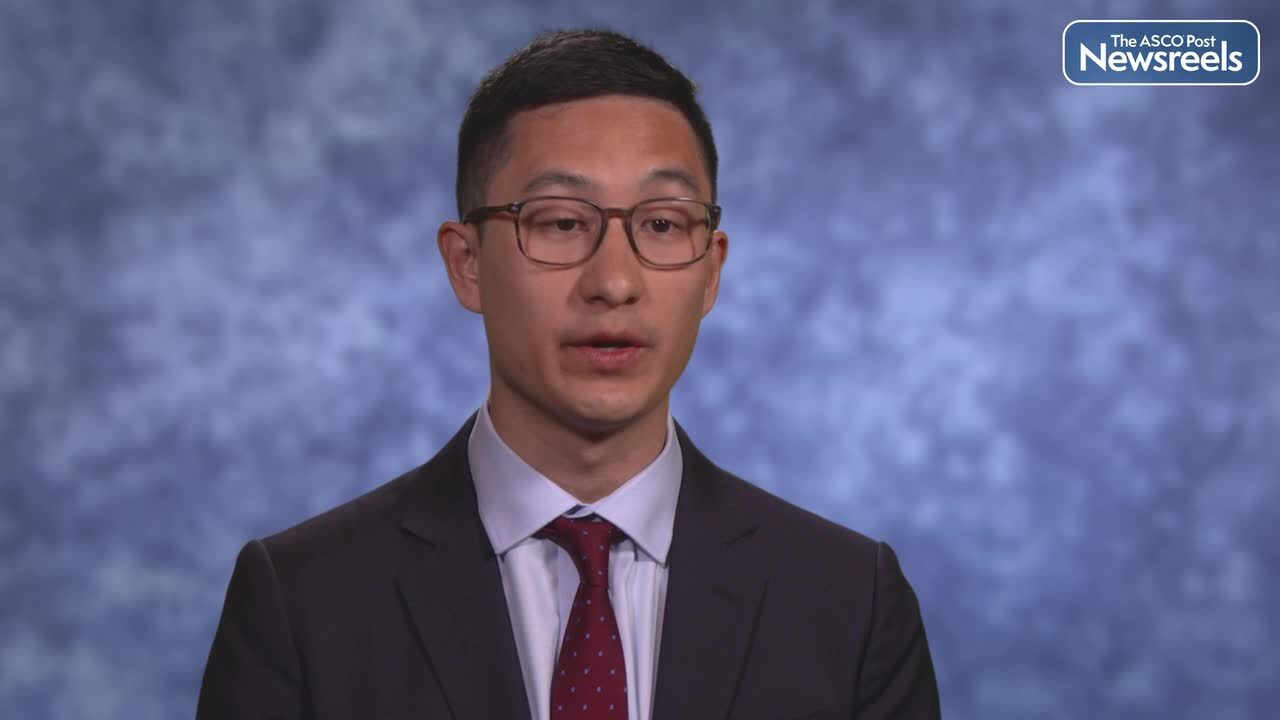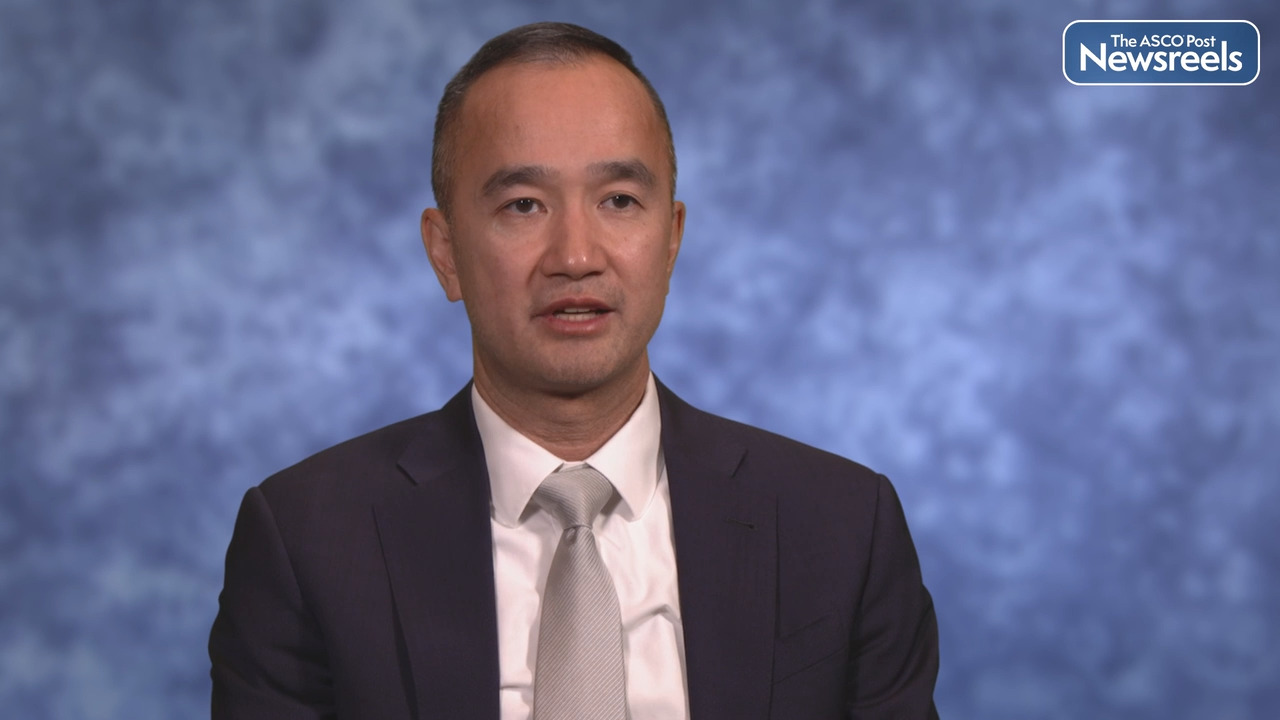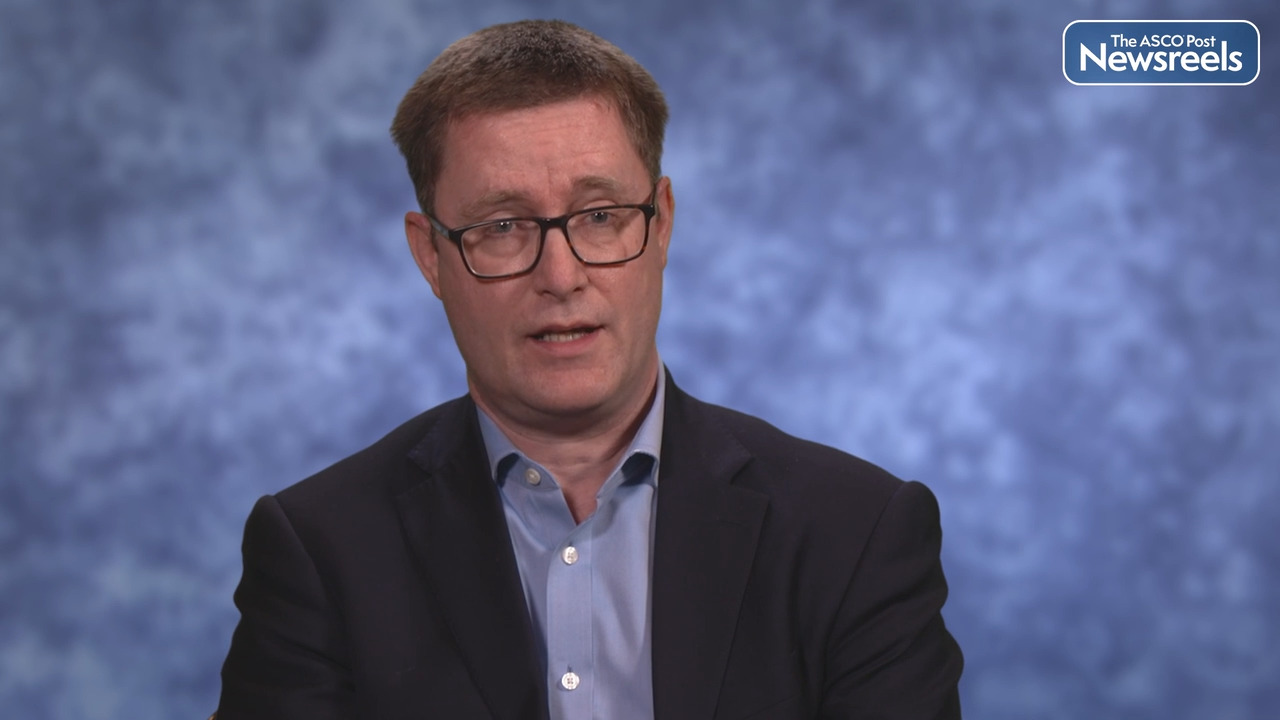Karen E. Knudsen, PhD, MBA, on Addressing Disparities in Genitourinary Cancers
2022 ASCO Genitourinary Cancers Symposium
Karen E. Knudsen, PhD, MBA, Chief Executive Officer of the American Cancer Society, discusses ways to address the inequities in genitourinary screening, treatment, and outcomes. Her suggestions focus on increasing awareness of screening, identifying risk factors, the dramatic rise in incidence among Hispanic individuals, and the basis for increased mortality in Black men.
The ASCO Post Staff
Petros Grivas, MD, PhD, of the University of Washington and Fred Hutchinson Cancer Research Center, discusses results from Cohort 3 of the TROPHY-U-01 study, which assessed sacituzumab govitecan-hziy in combination with pembrolizumab in patients with metastatic urothelial cancer who experienced disease progression after platinum-based regimens (Abstract 434).
The ASCO Post Staff
Fred Saad, MD, of the University of Montreal Health Centre, discusses phase III findings demonstrating for the first time the clinical benefits of olaparib plus abiraterone in patients with metastatic castration-resistant prostate cancer, irrespective of their homologous recombination repair mutation status. This regimen led to significantly longer radiographic progression-free survival than placebo plus abiraterone (Abstract 11).
The ASCO Post Staff
Wesley Yip, MD, of Memorial Sloan Kettering Cancer Center, discusses phase II results on neoadjuvant gemcitabine and cisplatin for high-grade upper tract urothelial carcinoma, which was well tolerated and demonstrated a favorable pathologic response rate. Dr. Yip notes that this treatment, given prior to nephroureterectomy, did not significantly delay surgery or increase perioperative complication rates.
The ASCO Post Staff
Kim Nguyen Chi, MD, of the University of British Columbia, BC Cancer-Vancouver Center, discusses first phase III results from the MAGNITUDE study, which explored the use of the PARP inhibitor niraparib with abiraterone acetate and prednisone as first-line therapy in patients with metastatic castration-resistant prostate cancer with and without homologous recombination repair gene alterations (Abstract 12).
The ASCO Post Staff
Simon J. Crabb, PhD, MBBS, of the Southampton Experimental Cancer Medicine Centre, discusses data from the ATLANTIS trial, in which the authors hypothesized that switch maintenance therapy with the PARP inhibitor rucaparib, in patients who have derived clinical benefit from first-line chemotherapy, may improve outcomes for those with metastatic urothelial carcinoma that harbored a composite biomarker for DNA repair deficiency (Abstract 436).
